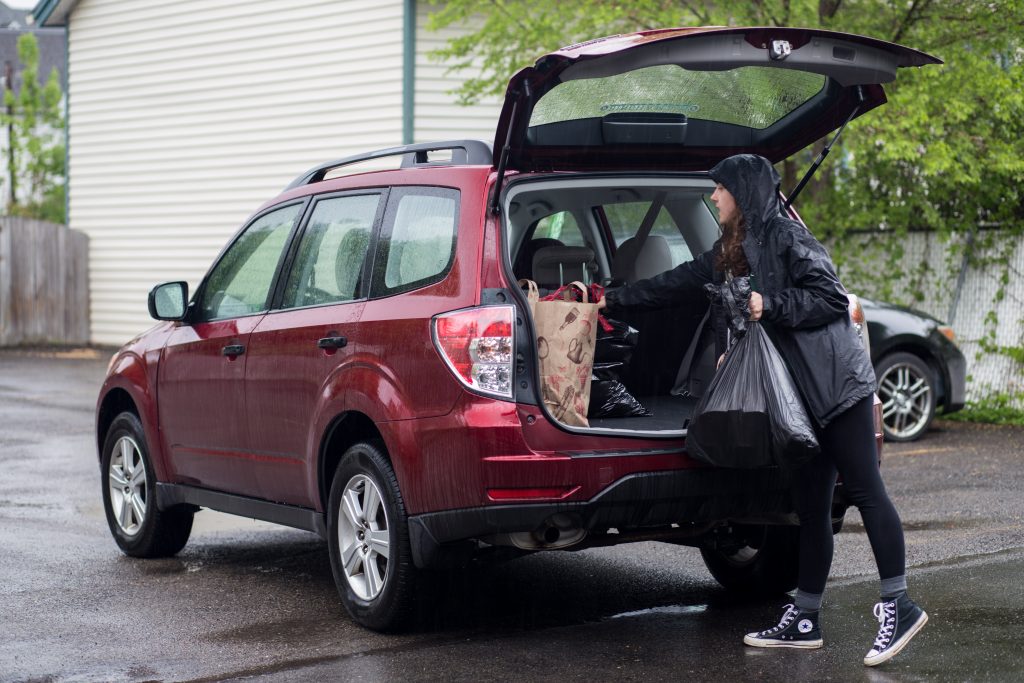
As the 2018-19 academic year comes to a close, many students will be moving out of their off-campus houses and apartments, leaving behind unwanted belongings. To help combat this waste, a group of students has created the Binghamton Off-Campus Project, an initiative that aims to reduce waste by donating students’ unwanted items to the community.
The project was started in 2018 by Binghamton University student Christina Fuller, a senior majoring in human development. Fuller, a Johnson City resident, wrote in an email that it stemmed from a discussion with her father and aunt regarding the amount of waste produced by BU students during the month of May.
“My dad had read that BU students produced about 14 tons of garbage upon move out,” Fuller wrote. “After talking to a few students and landlords, I realized that a lot of this ‘garbage’ wasn’t actually garbage at all. It was items in good shape that were being left behind simply because students didn’t know what else to do with them.”
With the help of the Intellectual Decisions on Environmental Awareness Solutions (IDEAS), an environmental awareness and outreach club at BU, Fuller was able to set her project in motion in May 2018. In its first year, Fuller’s project exceeded her own expectations, garnering over 100 responses from students. Now in its second year, she wrote that she hopes to take all the experiences from last year to make this one even more successful.
“For the entire month of May I drove around in my Subaru Forester picking up and dropping off carload after carload of donations,” Fuller wrote. “I’ve taken what I learned last year and made some big changes to make the project run smoother. I’ve recruited some volunteers, found a way to raise some money to pay for gas and made stipulations on what I can and can’t accept as donations.”
To donate, students have to fill out a Google form to provide their availability and details about the items they are donating. Then, Fuller and her team of volunteers can confirm an exact pickup time along with a list of what students can and cannot donate.
Gabriel Lesser, a senior majoring in political science, said the project can accomplish a great deal of good and should be replicated around the country.
“I think it’s a really cool idea, especially with how much waste there is in the country,” Lesser said. “We absolutely should try to cut down our waste considering our ever-changing climate and since we’re consuming more than ever before.”
Jeffrey Uy, a sophomore majoring in biology, said many of the students graduating next week could use the service to donate things they cannot move with them.
“This is really helpful since so many students don’t have cars to do this themselves,” Uy said. “It’s a really good idea especially with so many seniors graduating and most will want to give their stuff away.”
Fuller wrote that she hopes that students will also do their own part to decrease waste while moving out.
“I want to remind people is that while we are happy to come to pick up your items for you, we do encourage anyone who has the means to do so to take the items directly to the donation locations themselves as this is a small scale program and will lessen the burden on us,” Fuller wrote.


